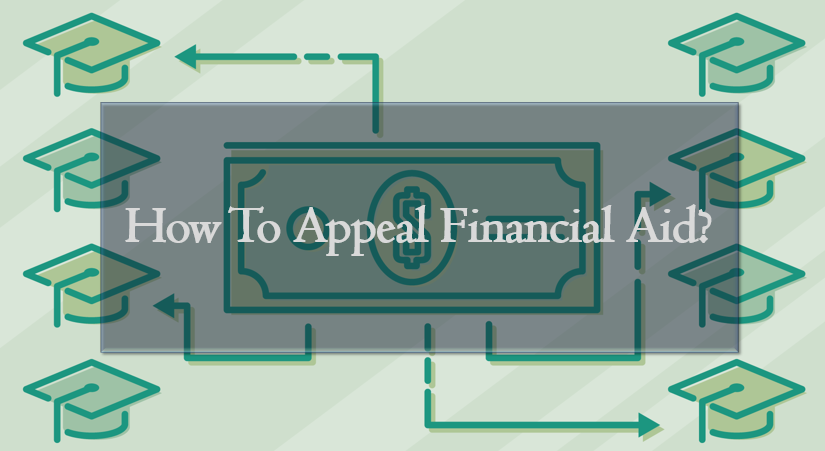You can still apply for more financial assistance if you didn't receive enough. The worst-case scenario is that the financial aid coordinator at the college says "no." However, understanding how the appeals process works are critical to increasing the likelihood of a successful appeal.
It's not like haggling with a car dealer, where bluff and bluster will get you a bigger, better deal. Appealing for further financial assistance requires providing sufficient evidence of specific circumstances that impact the family's ability to pay for college to the college financial aid office.
How to Make a Financial Aid Request
Take these measures to request more financial assistance for college:
- Inquire about the appeals process with the college's financial aid office. The appeals process can be referred to as a professional decision review, a special circumstances review, or a financial aid appeal, depending on the college. You may be asked to fill out a questionnaire that covers the most popular scenarios. Many colleges need a letter from the applicant's family.
- Determine the unique situations that affect your ability to pay for college. The exceptional circumstances are the reasons for your request for additional financial assistance. You may only have one unique case, or you may have many, but you must have at least one. A financial aid appeal cannot be justified solely based on a desire for more funding. The unique circumstances explain why you need additional funds. Focus on needs rather than desires.
- Write a letter of appeal. Keep the letter short and sweet, no more than one or two pages. The letter should provide a summary of the unique circumstances as well as their financial implications for the family. Provide a bulleted list of the special circumstances, with one special situation per bullet, if there are more than one. Organize the special circumstances by financial effect, starting with the most important special circumstance. Be particular, particularly when it comes to dates and financial implications. When a particular situation arises due to circumstances outside the family's control, emphasize it. Discretionary options, such as lifestyle expenditures, are less likely to be accepted by college financial aid administrators. If the financial aid office has any follow-up questions, provide your contact details in the letter.
- Don't demand a particular sum of money. The financial effect of the unique circumstances on the family will determine the adjustment in the financial aid program, not the amount of money you are seeking. Requesting a certain amount of money can result in you receiving less than you require. Some colleges will send you the lesser of the calculated shift in financial need or the sum you requested.
- Be courteous, as there is little recourse beyond the financial aid administrator at the college. You won't be able to appeal to the college president of the Department of Education in the United States. The college financial aid administrator, and only the college financial aid administrator, has the power to make changes to the data elements on the Free Application for Federal Student Aid (FAFSA). Thank the college financial aid administrator for their consideration of your appeal at the end of the letter.
- Obtain evidence of the unique circumstances from a third-party source. Copies of layoff notices, medical/dental bills, bank, and brokerage account statements, receipts, and letters from individuals familiar with the family's situation are examples of evidence. Teachers, school counselors, social workers, physicians, and police officers are all good candidates to write letters to the family. Letters from priests, rabbis, pastors, imams, and other religious leaders may also be beneficial. The documents must be relevant to the unique situation.
- Fill out any paperwork that the financial aid office at your college needs. These forms are used to collect information about the family's financial situation, including unique situations. As part of an appeal for more financial assistance, most colleges conduct a comprehensive analysis of the family's financial situation.
- copy the paperwork and attach it to the appeal letter. Originals should not be sent because they will not be returned. Documentation would be imaged and then shredded at several universities.
- Send the note, paperwork, and forms to the financial aid office at the college. To ensure that the letter is received, send it with delivery confirmation or certified mail, return receipt requested. Since each college reviews the financial aid appeal on its own, send the letter to all of the colleges to which the student has applied.
- A week after mailing the appeal letters, call each college's financial aid office to confirm receipt. If the college financial aid office needs some additional details, inquire.
When Will You Make a Request for Additional Financial Aid?
You may request additional financial assistance at any time.
You have the right to appeal before applying for financial assistance. After you've applied for financial assistance, you can file an appeal. You may file an appeal at any time during the academic year. You can file an appeal either during or after your first year of college.
When a particular situation arises, it is best to apply for additional financial assistance as soon as possible. If a parent loses their employment, for example, apply for extra financial assistance as soon as you receive the layoff notice or termination letter.










.jpg)


